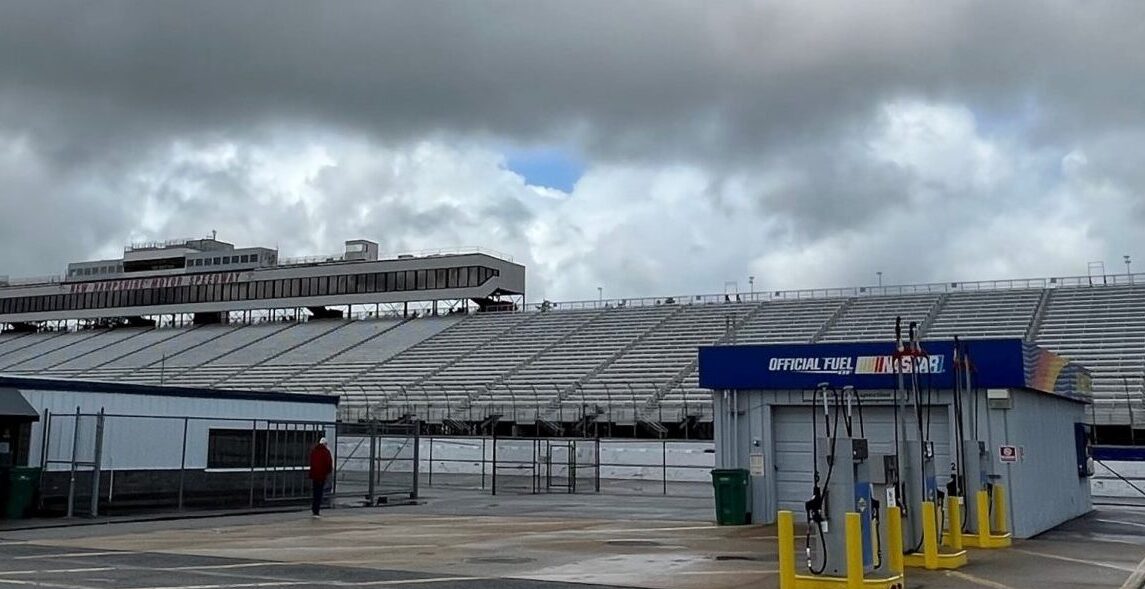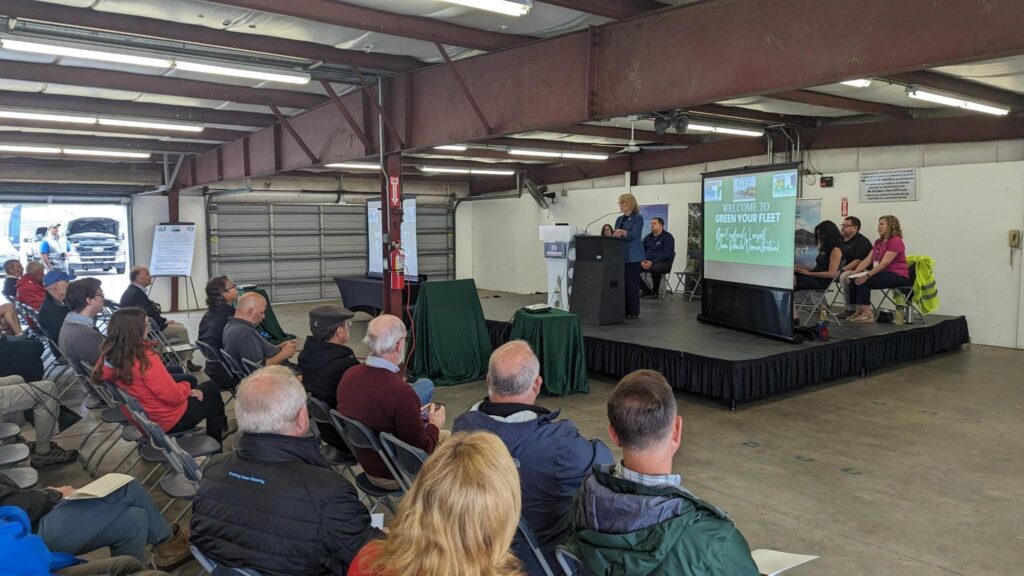
Takeaways from the 2023 “Green Your Fleet & Beyond” Event
- July 7, 2023
- Transportation
On Friday, June 9, 2023, SWRPC staff attended the “Green Your Fleet & Beyond” (GYF) event at the New Hampshire Motor Speedway in Loudon, New Hampshire. GYF brought together stakeholders from a wide variety of backgrounds and included programming relevant to planners, policymakers, fleet managers, electric vehicle enthusiasts, and everyone in between. Notably, the event culminated in a “ride and drive” on the Motor Speedway racetrack, allowing participants to try driving in an assortment of alternative fuel vehicles. The event was co-coordinated by Clean Cities Coalitions in New Hampshire, Vermont and Maine.

GYF began with introductory remarks as well as a first round of speakers, highlighted by a surprise visit from US Senator Margaret Hassan (D-NH). Senator Hassan’s remarks centered on her dedication to passing legislation at the federal level to help our nation transition to alternative fuel vehicles. A key sentiment of her address was that there is not a choice between growing our economy and pivoting to clean energy, but rather that the transition will lead to the former.
The event continued with a speech by Margaret Smith, Technology Manager at the U.S. Department of Energy Vehicle Technologies Office, which centered on decarbonizing transportation. She discussed a $2 million grant for the development of clean energy community transportation plans in the Northeast. The following programming was a panel focusing on alternative fuel vehicles in commercial or municipal fleets, and featured stakeholders from companies such as Cabot and Merchants Fleet, as well as the City of Keene’s fleet manager, Jim Mountford. One key highlight from this panel was the usage of liquefied petroleum gas (LPG) and compressed natural gas (CNG) as alternative fuels in heavier vehicles for which electric options may not yet exist at a realistic scale. While the burning of these fuels does still emit greenhouse gases, they burn cleaner than gasoline or diesel, which means the vehicles emit fewer harmful chemicals. Additionally, LPG and CNG can be produced using more environmentally friendly approaches than the refinement of crude oil for gasoline and diesel fuel.

Time was allocated after this panel for attendees to look at the vast array of alternative fuel vehicles on site. There were high performance electric vehicles such as the Hummer EV, Rivian R1T, Audi e-Tron GT, and various models of Teslas. There were also alternatively fueled work-vans, pickup trucks, a garbage truck, a school bus, and much more. Browsing through the selection was a great source of entertainment, and participants could get a sense for which vehicles they wanted to try during the “ride and drive” (regrettably, the school bus and garbage truck were not available to be driven).
Following the vehicle display, the second panel of the day focused on incentives and grant opportunities for green vehicle adoption. Important discussions from this panel focused on the National EV Infrastructure (NEVI) program and the Charging & Fueling Infrastructure (CFI) program, both of which can help to bring important infrastructure to the Southwest New Hampshire region. Following these presentations was a brief third panel which discussed the shortage of mechanics that are qualified to work on EVs and other alternative fuel vehicles. This represents a serious problem considering the predicted increased prevalence of alternative fuel vehicles.
GYF culminated with the promised “ride and drive” event, which not only offered participants a chance to drive on a real race track, but also to get behind the wheel of some relatively exclusive vehicles. For some, it may have been their first time driving an electric vehicle, which is a unique experience compared to driving an internal combustion engine (ICE) vehicle. In an EV, modulation of the “gas” pedal can also function as a brake, as regenerative braking begins to slow the vehicle as soon as pressure is lessened. The result is a system that feels quite different from an ICE, especially when being thrown around the tight corners of a race track!
In total, the event was highly informational, appealed to many different stakeholders, and will help inform and guide the development of new alternative fuel infrastructure in New Hampshire. If you have any questions about the event, the grant opportunities mentioned, or anything else regarding this article, please contact Jason Cooper at [email protected] or (603)357-0557.



